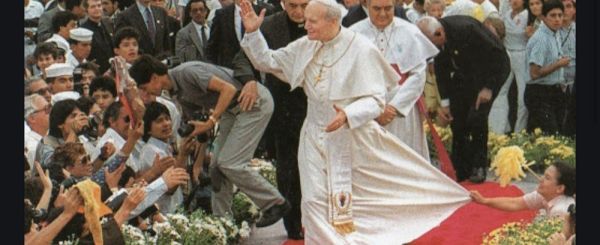5. “He spoke of the temple of his body” (Jn 2:21).
In the Gospel we again read the story about the driving of the merchants from the temple. St John’s description is vivid and eloquent: on one side there is Jesus, who, “making a whip of cords, drove them all, with the sheep and oxen, out of the temple” (Jn 2:14-15), and on the other are the Jews, particularly the Pharisees. The contrast is so strong that some of those present ask Jesus: “What sign have you to show us for doing this?” (Jn 2:18).
“Destroy this temple, and in three days I will raise it up” (Jn 2:19), Christ answers. To which the people reply: “It has taken 46 years to build this temple, and will you raise it up in three days?” (Jn 2:20). They had not understood —St John notes — that the Lord was talking about the living temple of his body, which, during the paschal events, would be destroyed by his death on the cross but would be raised up on the third day. “When therefore he was raised from the dead”, the Evangelist writes, “his disciples remembered that he had said this; and they believed the scripture and the word which Jesus had spoken” (Jn 2:22).
It is the paschal event that gives authentic meaning to all the various elements of today’s readings. At Easter the power of the incarnate Word is fully revealed, the power of the eternal Son of God, who became man for us and for our salvation.
“Lord you have the words of eternal life”.
We believe that you are truly the Son of God.
And we thank you for having made us sharers in your own divine life.
Amen.
[Pope John Paul II, homily 2 March 1997].












